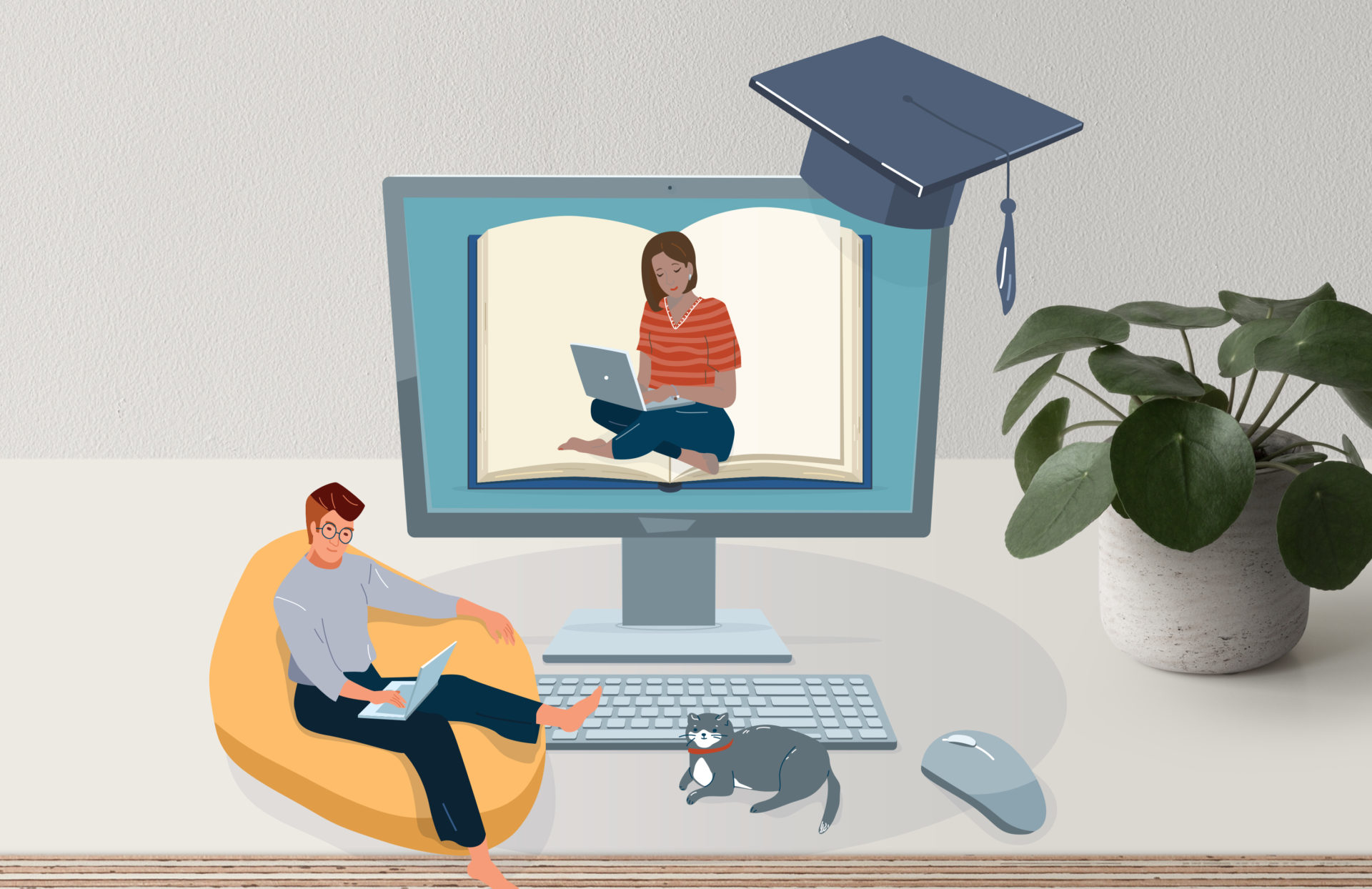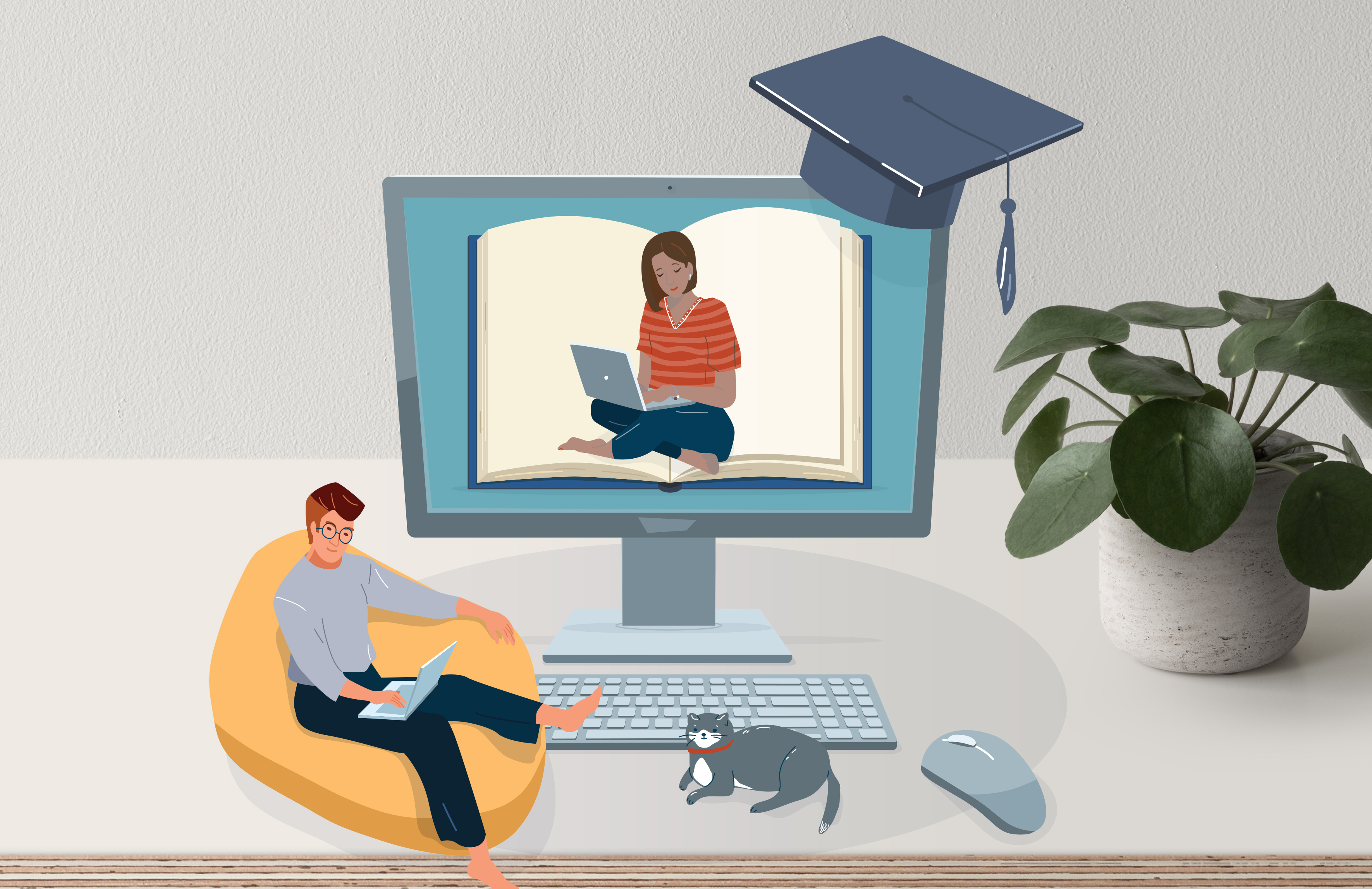
Maintaining Good Mental Health at University (During a Pandemic)
University students have been expressing concerns about their mental health for many years. And unfortunately, the COVID-19 pandemic has made it harder for many.
Most universities are now delivering course content online, and it will be harder to get face-to-face support in this model of higher education.
But the positive news is that good mental health support is still possible. It just has to be adapted to the new, more remote environment. And it’s crucial that we make an effort to do this.
Here are some of the ways you can show up for students, and for yourself, when mental health care is more important than ever.
Being aware of ‘neurodiversity’ and mental illness
Let’s start with the basics. We should be aware of how diverse students (as well as university staff) are in terms of their psychology. This might sound like a vague concept at first, but ‘neurodiversity’ simply recognizes that everyone’s brains and minds are different. It also includes and values those that have mental illness and intellectual disability.
According to the American Psychological Association (APA), the most prevalent mental health issues among university students are depression, anxiety disorders and panic disorders.
Many – but not all – mental health problems are triggered, made worse or prolonged by stress and anxiety. And many people also develop temporary mental illness in times of great stress.
The risk factors with COVID-19
We know the typical risk factors that usually contribute to poor mental health in university students: Lack of sleep, poor diet, financial stress, a poor work/study balance, living away from family and performance pressures.
These circumstances are being exacerbated during the pandemic, especially financial pressures from job losses, as well as social disconnection and a lack of mental health support.
Co-Director of Health and Policy at The University of Sydney’s Brain and Mind Centre Professor Ian Hickie, has said that the most effective way forward during this pandemic is “engaging people to be community-minded and active in their local settings to support and care for each other”. This is especially true when many public health systems are stretched. Community care is invaluable in this environment.
What you can do for your students
1. Communicate!
Communication is the number one way you can support students during this time. It is harder than usual to reach out to people while we are isolated from each other, but that isolation is exactly why we need to prioritize communication.
Students need to know that there is support available to them and that the university values their mental health in this difficult time (and always). Sending a preliminary communication to all students about disability and mental health services during the pandemic will be crucial in starting these conversations.
Research shows that students who disclose a disability (including mental illness) have the best outcomes at college or university. Letting the university know about their disability – or simply that they need support – can help students access adjustments and material support, receive help with meeting deadlines, and get support to meet friends.
The crucial detail here is not to ask students directly to disclose a disability. This can have the opposite effect. Rather, it is about creating a welcoming, inclusive environment that acknowledges the importance of mental health in a difficult time, and which offers plenty of opportunities for open conversation.
2. Establish routine
Routine is important for good mental health. This is especially true in times like this when our days lack structure and we are spending most of our time at home.
Having a routine becomes even more helpful again when we have university timetables and assignment deadlines to remember.
The routine isn’t meant to simply achieve academic success, though. It gives us structure around which to plan, set goals and feel some ownership over our time. This is true even if we are not studying at university and our goals for the day are simply to get out of bed, go for a walk and eat a meal.
Establishing routine in classes and communication, and encouraging routine in students’ daily lives, will be a positive step in supporting good mental health at this time.
3. Encourage physical wellbeing
Exercise is one of the most effective ways to relieve the pressure of mental stress and mental ill health. Regular, vigorous exercise substantially reduces anxiety, improves sleep and boosts self-confidence.
This is something else you can easily recommend to all students. If getting on the move outdoors is not possible, suggest other forms of exercise such as dancing, setting up a space for strength or cardio exercise in their homes, or participating in a group work-out online. There are plenty of online resources for fitness that are taking off right now.
In addition to this, a well-balanced diet will help students to feel happier and healthier. As part of your broad communications to the student group, you can even suggest some healthy recipe ideas that are nutritious and low-cost.
4. Enable (remote) social interaction
Making friends and developing new social connections is always a challenge at university, but being isolated at home makes this much more difficult. And since social interaction is a very important part of mental health, we need to be imaginative about how we enable those social connections during the pandemic.
Make sure your students know about social groups or clubs that are available to them as part of the university community, and that these groups are accessible online. All online activities will also need to be accessible to students with disabilities – including those who are deaf and hard-of-hearing, those who are blind or have low vision, and those who have other disabilities that require accessible information. You can find out how to create access for these students in this blog article.
You can also facilitate connections between students by giving them opportunities to chat before, during or after online classes.
5. Take time out
‘Taking time out’ might sound strange when we are doing everything at home, but it’s actually common to get stressed out when we are in the same environment long-term (especially if there’s also a pandemic going on).
So it’s important to schedule time out from study and from work, and encourage students to take breaks when they’re feeling overwhelmed. This will also make study more effective in the long run!
There are plenty of great online resources for mindfulness and meditation, which can help reduce stress, anxiety and many other mental health complaints.
6. Prioritize support for students with multiple disabilities
Students with mental illness are more likely to have other disabilities as well. And these students will have even great access challenges as there will be multiple barriers to their success and contentment at university.
This is why it’s so important to take a holistic approach to supporting each student – keeping all their access and support needs in mind, and making the learning environment welcoming and inclusive for everyone.
Take care of you
All of these tips for good mental health also apply to you! Don’t forget to take care of yourself so you can be in a happy and healthy state of mind. We can’t look after others until we look after ourselves.
If you would like more information on Ai-Media or the accessibility services we provide, just get in touch or visit the Ai-Media website.










